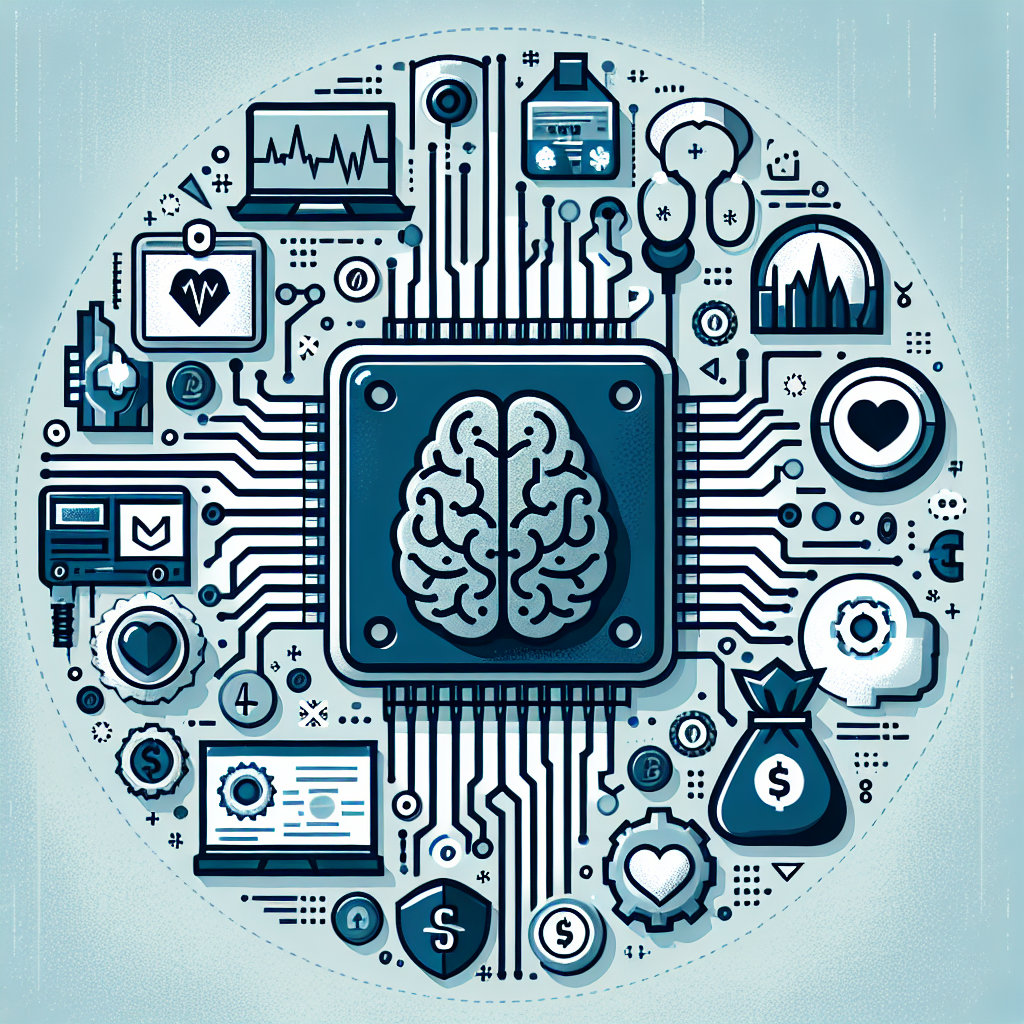Artificial General Intelligence (AGI) is a term that refers to a type of artificial intelligence that possesses the ability to learn, understand, and apply knowledge in a way that is similar to human intelligence. AGI has the potential to revolutionize industries such as healthcare, finance, and many others by providing advanced capabilities that can improve efficiency, accuracy, and decision-making processes. In this article, we will explore how AGI is a game-changer for these industries and how it can impact the future of technology.
Healthcare:
One of the most promising applications of AGI in healthcare is the use of machine learning algorithms to analyze medical data and provide personalized treatment plans for patients. AGI can process vast amounts of data from patient records, medical imaging, and genetic information to identify patterns and correlations that can help healthcare providers make more accurate diagnoses and treatment decisions. This can lead to more effective and efficient healthcare delivery, resulting in better patient outcomes and reduced costs.
AGI can also be used to develop predictive models for diseases and health conditions, allowing healthcare providers to intervene earlier and prevent the progression of illnesses. For example, AGI algorithms can analyze patient data to identify individuals who are at high risk for developing certain diseases, such as diabetes or heart disease, and recommend preventive measures to reduce their risk. This can help to improve population health and reduce healthcare costs by preventing costly treatments and hospitalizations.
Finance:
In the finance industry, AGI has the potential to revolutionize the way financial institutions operate by providing advanced capabilities for analyzing market trends, predicting investment opportunities, and managing risk. AGI algorithms can process large amounts of financial data from various sources, such as market data, news articles, and social media, to identify patterns and trends that can help investors make informed decisions.
AGI can also be used to develop trading algorithms that can execute trades automatically based on real-time market data and predefined rules. This can help financial institutions to optimize their trading strategies, reduce human error, and improve trading performance. Additionally, AGI can be used to detect anomalies and fraud in financial transactions, helping to prevent financial crimes and protect consumer data.
Other Industries:
AGI has the potential to impact a wide range of industries beyond healthcare and finance. For example, in the manufacturing industry, AGI can be used to optimize production processes, predict equipment failures, and improve supply chain management. In the transportation industry, AGI can be used to develop autonomous vehicles that can navigate roads safely and efficiently. In the retail industry, AGI can be used to personalize customer experiences, optimize pricing strategies, and predict consumer behavior.
FAQs:
Q: What is the difference between AGI and other types of artificial intelligence?
A: AGI refers to a type of artificial intelligence that possesses the ability to learn, understand, and apply knowledge in a way that is similar to human intelligence. Other types of artificial intelligence, such as narrow AI or machine learning, are designed to perform specific tasks or solve specific problems. AGI is more general and versatile, allowing it to adapt to a wide range of tasks and contexts.
Q: How is AGI different from artificial superintelligence?
A: AGI refers to a type of artificial intelligence that possesses human-like intelligence and cognitive abilities. Artificial superintelligence, on the other hand, refers to a type of artificial intelligence that surpasses human intelligence and cognitive abilities. While AGI is still a theoretical concept, artificial superintelligence is considered to be a more advanced and potentially dangerous form of artificial intelligence.
Q: What are the ethical implications of AGI?
A: The development and deployment of AGI raise a number of ethical concerns, including issues related to privacy, bias, accountability, and transparency. For example, there is a risk that AGI algorithms may inadvertently perpetuate existing biases in data or decision-making processes, leading to unfair or discriminatory outcomes. It is important for developers and policymakers to address these ethical concerns and ensure that AGI is used responsibly and ethically.
In conclusion, AGI has the potential to revolutionize industries such as healthcare, finance, and many others by providing advanced capabilities that can improve efficiency, accuracy, and decision-making processes. While the development and deployment of AGI raise ethical concerns and challenges, the potential benefits of AGI are vast and far-reaching. As technology continues to advance, it is important for businesses, policymakers, and society as a whole to consider the implications of AGI and work together to ensure that it is used responsibly and ethically for the benefit of all.

